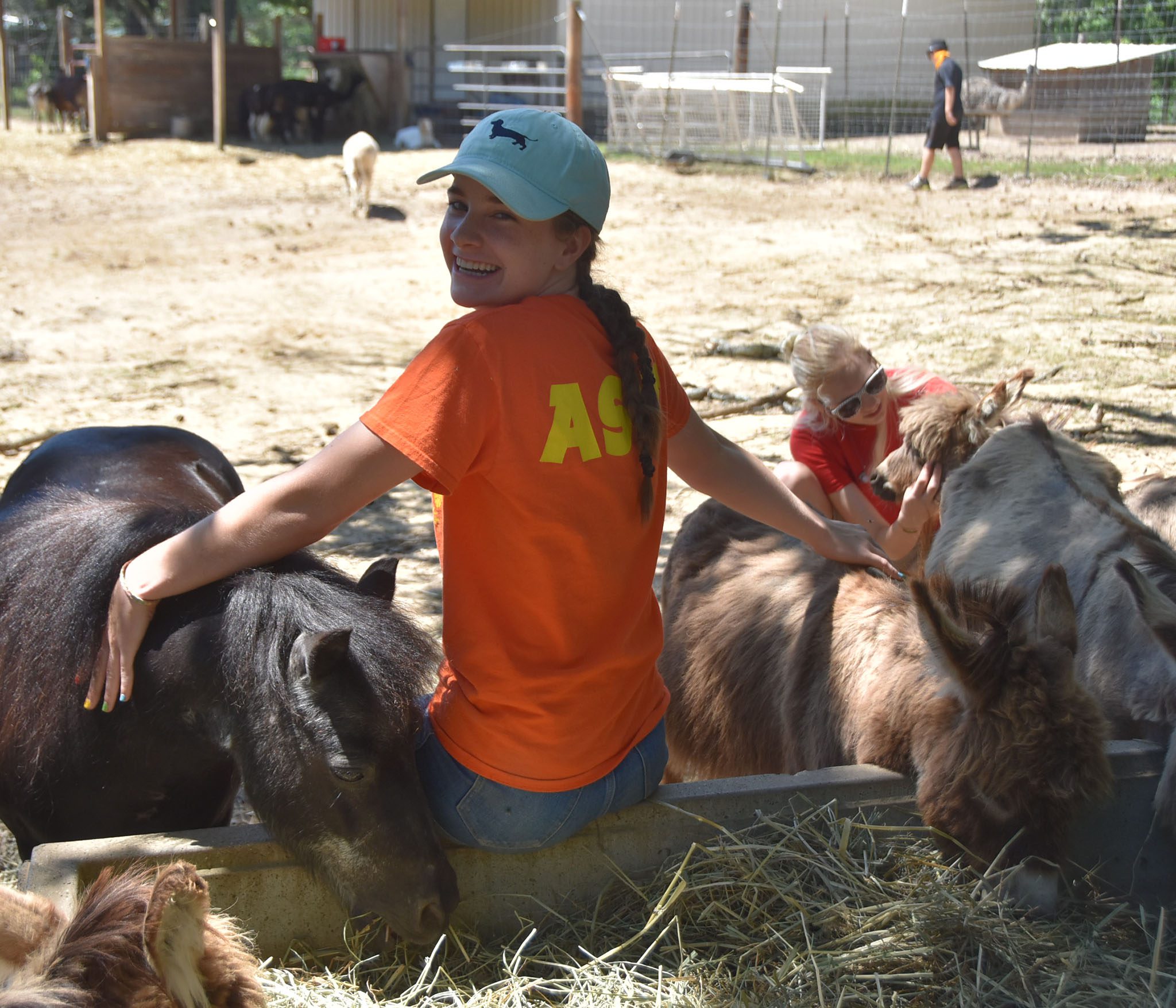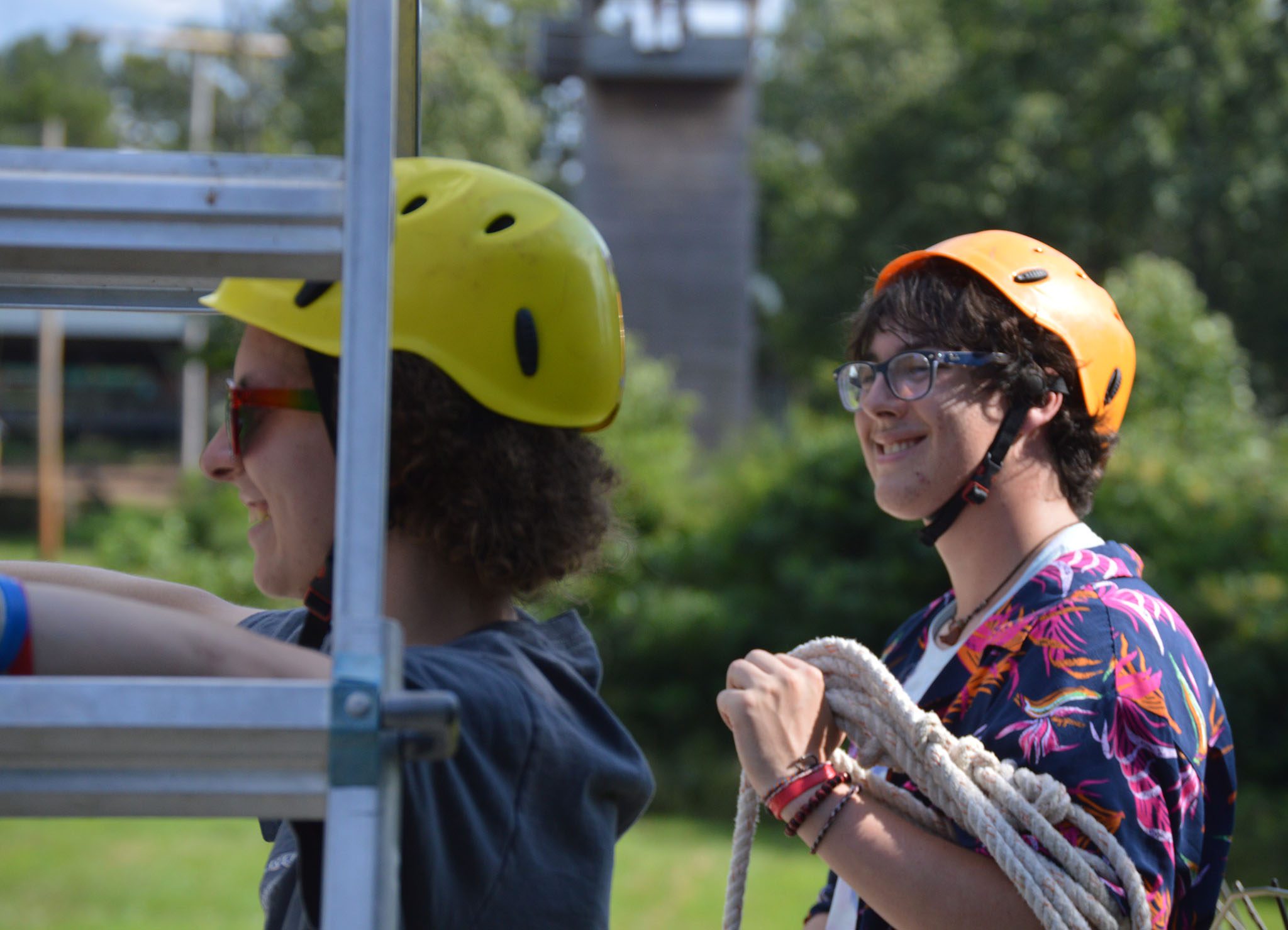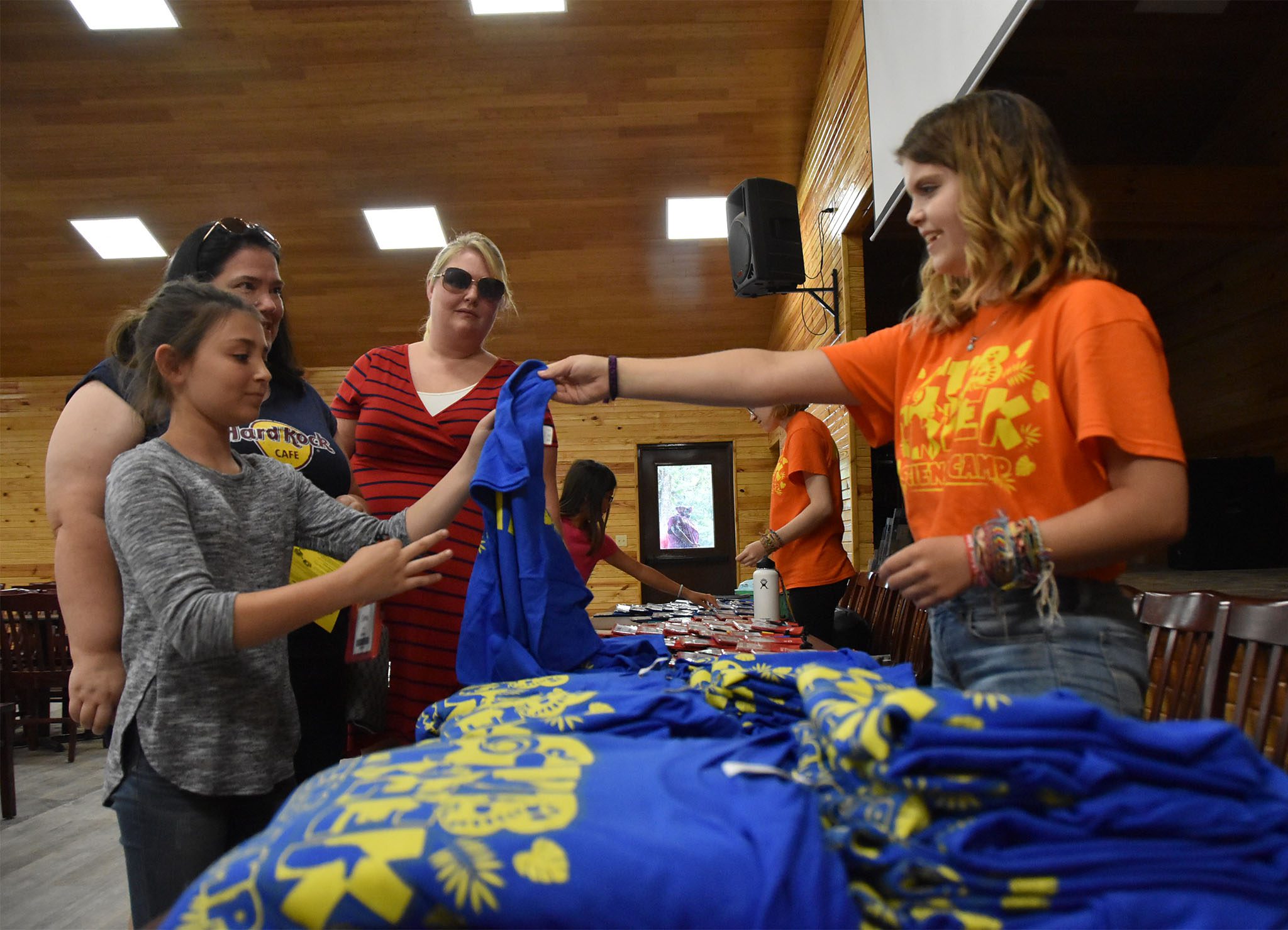ASIT Training
This is your hub for ASIT Training as we approach the summer!
On this page, you will find your ASIT Manual, training essays written by our team about various topics, a FAQs section, and more!
If you have any questions, send us an email!
Makayla C -Animals@cubcreeksciencecamp.com
Main Office - Office@cubcreeksciencecamp.com
573-458-2125

ASIT Manual
Download your ASIT Manual using the button. ALL ASITs SHOULD READ THE MANUAL PRIOR TO CAMP. First year ASITs, this manual will help you understand the goals and expectations of the program while explaining many of your upcoming tasks. Returning ASITs, please familiarize yourself with the expectations and changes in the program.
Training Essays
In this section, you will find essays written by members of our team on various topics. Each essay touches on a topic of interest like "team-work" or "leadership". Take some time to read these essays to guide yourself in thinking about how to best prepare for your role this summer.
Leaders and Leadership [Videos], by Ari Farley
"Leadership" is such an incredibly vast topic and there is so much to say about it! For this essay, I have decided to share and discuss some videos I think tackle some great conversations regarding what it means to be a leader both to ourselves and to others. 3 of the 4 videos are from Simon Sinek, who I find to be an amazing and captivating. I could send you SO many Simon Sinek videos, but I restrained myself. Take some time to watch these videos and reflect on the messages for each of these. I hope that you can find these videos can be beneficial and applicable for you now, at camp, and beyond camp. If you want to chat about these, send me an email (marketing@bearriverranch.com) 🙂 Happy to talk about my boi Simon any time.
Click here to read more...
Be an Infinite Player- Simon Sinek
This video best supports our goals for you all: the ASIT Program being something to support your future and giving you skills that can be applied to make other big steps in your life. The transition from camper to ASIT, growth in all your ASIT years, and the transition from ASIT to camp staff or beyond camp is going to be met with obstacles and hurdles. Some of these blocks will be ones that make you feel like you’re not succeeding. I know we all, myself included, find those obstacles limiting and sometimes they stop us from going after what we want. And certainly when we see others getting praise, it makes those hard times even harder.
“The goal isn’t to be the best everyday, or to out-do your competition everyday”... “Infinite players play to outdo themselves”... “Joy comes not from comparison, but from advancement”
As an ASIT, I want you to work to make yourself proud. Yes, you have to meet the standards of the program- but that isn’t hard to do! We’re asking you to make appropriate choices and follow the rules- not hard. The tough things, whether it be communicating with campers or working in the animal area, have to come with practice. Grow and learn from your own mistakes and try not to compare yourself to others. Play to out-do yourself.
How to Make an Impact- Simon Sinek
Many ASITs want to join the ASIT program to “give back to the campers” or to “help camp grow”. And frankly that is one of my favorite things to hear. On purpose or not, you will on some level make a difference for someone as an ASIT. Campers, fellow ASITs, or a camp staff will be impacted in some way by you. For those who are seeking to make a difference, this video is for you. For those wanting to grow as a stronger leader - this is definitely for you.
In this video there were a lot of things that I loved. I’m going to paraphrase and frankly plagiarize from what Simon said in his talk:
Leadership is about transitions. Fundamentally believe in your course of action. Commit to an act of service. Stick with something consistently, and there will be results. We treat leadership with an intensity, as if it is instantaneous. Daily practice is what is important.
Be patient with yourself, put in the time and work, and you’ll see progress.
Why I Failed to Become A Great Leader- Jason Baca
Help Others Understand Their Own Value- Simon Sinek
This talk reminds me the most of summer camp and more specifically for the ASIT team. There are very few moments as an ASIT, when you are working on something solo. For morning rounds you are in a group, in activities you’re with an instructor, and with your cabins you are typically with another ASIT. That is so many times when you may be asked for help or you will need help yourself.
In this video Simon refers to Marines going through basic training. In no way is the ASIT Program like basic training- let me make that very clear! BUT I do see the similarities in how the groups could behave. As an ASIT, you may feel compelled to show that you are independent and know what you’re doing. And perhaps you are independent and you already know what you're doing- cool. But those who are closed off to offering help to others by being dangerously “independent” are also those who others have a hard time offering help to. Everyone is going to need help at some point- whether you want to accept it or not! But that is what makes a strong team; A collection of people who are seeking to benefit others and aid each other in working towards a common goal.
He also said this which I think is SO important: Do more with what you have. We don’t celebrate what we’ve got, we criticize for what we don’t have.
Overall, the talk is a little management/job driven, but I think it’s very applicable to the ASIT team and camp culture.
There are SO many powerful videos on the internet that discuss leadership and the concepts deeply intertwined like independece, confidence, attitude, and team-work. The ASIT Program is both an introduction and a daily practice of these things in our protected "camp bubble". I hope that you can find these helpful as we apporach the summer.
- Ari Farley , Spring 2020
Personality Types & What They Can Tell Us, by Ari Farley
I am so intrigued by the study that goes into describing and analyzing "personality types". I believe that personality types can offer insight to ourselves that challeneges us to be introspective about our reactions in situation and our inate skills. Personality types give us a description of some of our known and unknown strengths while also alerting us to some of our given weaknesses.
Click here to read more...
In this essay, I am referring to, quoting from, and discussing the “16 Personalities” test. (16personalities.com)
Let’s start with the science and history of this. Personality types are rooted in “Psychology”. That makes perfect sense that the study of behaviors and the human mind would support the concepts of personality types. Attempts at defining personalities goes way back beyond the 20th century, but one influential theory was from Carl Gustav Jung who developed the concept of Introversion and Extraversion. In the 1920’s Katharine Cook Briggs and her daughter Isabel Briggs Myers created the “Myers-Briggs Type Indicator” using their own studies and theories from Jung. Myers-Briggs is the standard for personality typing today.
“Personality is just one of many factors that guide our behavior. Our actions are also influenced by our environment, our experiences, and our individual goals.”
Personality types are fascinating to me for so many reasons. They can help validate people's behaviors, moods, and help guide them in understanding themselves in ways they hadn't necessarily noticed before. To explain, I'll highlight some things from my Personality Type, ENFP.
My personality type is ENFP, also known as the Campaigner in the 16 Personalities world. The letters in my personality type stand for (E) Extraverted, (N) Intuitive, (F)Feeling, and (P) Prospective. Later on I’ll give you a link that helps you understand the meanings of those “aspects”. To start, let’s focus on one of those letters:
N : Intuitive individuals are said to be very imaginative, open-minded and curious. They prefer novelty over stability and focus on hidden meanings and future possibilities.
The above speaks very much to me. I pride myself for being a creative person- and not in just the "art" way. I like to think of creative solutions to problems. I want to be able to think idealistically- to think of what all is possible- before I think practically of what is actually doable. If I know something isn't "working" I want to fix it- and I'm not afraid to try something we haven't tried before. I love to think "outside of the box". These are concepts also discussed in the Campaigner "Strengths" section.
And while the strengths of my personalities had me feeling good, 16 Personalities goes on to read me in the “Weakness” section saying that I am "highly emotional"....(can you tell I am not a fan of that?! lol) But what I find MOST imporant in the weakness section are "Finds It Difficult to Focus" saying " It's hard for Campaigners to maintain interest as tasks drift toward routine, administrative matters, and away from broader concepts" (aka ideal v practical)
What I find most magical about personality tests is that it gives you a chance to reflect on the qualities you're proud of! Go on and *brag * about * yourself*! But it also provides balance by highlighting the things you aren’t so keen about yourself (HiGhLY EmOTionAl). This gives you a chance to see yourself from an outside perspective and be more conscious of those traits in interactions with your peers, supervisors, loved ones, etc. These aren't presented as suggestions to change yourself or not to be authentically you. Instead to help you show up more authentically 'you' and allow yourself to be conscious of the things that can possibly get in the way of your success, friendships/relationships, and/or growth. My need to be creative can also stifle my abilities to get necessary tasks done.
As it relates to being an ASIT, being aware of your personality type can be beneficial in goal setting, how you interact with the members ASIT team, and what aspects of the program you will find challenging or easy. Obviously, this will be great for everything in your life not just ASIT stuff!
If you have not taken a personality test before, I encourage you to take one at https://www.16personalities.com/
If you have taken one before and you have your “letters” (eg. mine are E,N,F,P), go look it up at 16 personalities and read how they describe your type.
You can read more about the history, 16 Personalities' specific approach, and the aspects of the personality types (the meaning of the letters) here.
- Ari Farley , Spring 2020, Revised March 2021
Tips for When Leading an Activity or Game, by Scott Gardner
I have 30+ years of leading activities and games (icebreakers, fun & interactive, problem solving, team building, etc). Here are 12 tips that I learned from my friend, Dr. Jim Cain. They will help you to become a better facilitator. You do not need to do all of these things at once, but I would encourage you to try several of these ideas each time you prepare for this summer when helping with cabin activities.
Click here to read more...
Facilitator – noun, a person that makes an action or process easier.
1. The Law of Seven Minutes
Never perform an icebreaker with your group for more than seven minutes. I would rather lead three activities in a 20-minute period, than a single activity for 20 minutes.
The attention span of most people is fairly short. By limiting the total time you conduct an activity, you can keep the energy high as well as the engagement level of the group. This is especially true with opening activities and icebreakers.
2. No Prop Activities
Know how to do wonderful things with no props. Any facilitator should have ten activities they can lead, right here, right now, for any number of people, with no props of any kind.
I simply cannot count the number of times I’ve been part of a group, with plenty of people around, plenty of space and plenty of time, but absolutely no resources (props) of any kind. As a facilitator, knowing several wonderful activities that you can lead, without any equipment of any kind, makes you a resourceful and talented person indeed.
3. Simplify!
For most of the activities I share with groups, I can easily present the activity in less than a minute of instruction. If you require more than five minutes to present an activity, you have probably lost some people in your audience. As a facilitator, your role is to make things easier, simpler, clearer, better.
4. Flexibility
Be flexible. Have a plan but be willing to modify this plan as needed. Your ability to be flexible increases your value as a facilitator. If you can modify your program quickly and quietly to meet the changing and evolving needs of your group, you will engage them at a higher level and they will take more away from your event than sticking to a less flexible plan.
5. Authenticity
When you learn a new activity from someone, either from a book or in person, don’t feel that you have to replicate exactly what that source did to be successful. Be yourself. Be authentic. Lead activities in your own comfortable style. Modify the presentation of the activity to fit your own unique (and wonderful) facilitation style.
6. Provide Choices for your Participants
One of the simplest ways to increase the engagement of any group is to offer them the opportunity to make choices. When preparing for an event, you might have two activities ready for the group. By asking them, “which activity would you like to do next?” you give them control over their own destiny.
Choice is such a simple concept, but when used well, it can dramatically increase the engagement of your campers. So, look for opportunities to give the members of your group choices and decisions and invite them to join you in setting the course for your time together.
7. Which activity should I present?
The correct answer to this question is very simple. You should present the activity that you are excited about. If you are excited about an activity, your audience will be excited about it and if you are not, they won’t be either! Enthusiasm is contagious. Facilitators have more energy for an activity that excites them, and they pass this energy on to their group.
So, spend a few moments and make a list of all the activities that really excite you. This list of ‘favorites’ identifies those activities that you are likely to lead with enthusiasm.
8. Speak French : Facilitator = Animateur
Interestingly, the French word for facilitator is animateur, which means to animate or bring life to. I like the idea of a facilitator bringing energy and life to a group, but this requires preparation on the part of the facilitator. If, for example, your group lacks enthusiasm and energy, as a facilitator, you may have to give them some of yours.
9. PPPPP - Proper Preparation Prevents Poor Performance
Becoming a skilled facilitator takes more than just ‘winging it.’ Proper preparation includes having a plan for the event, estimating the size, age and skills of the group, preparing the necessary equipment and resources, practicing activities to ensure that you can create teachable moments with them and building confidence when working with groups. Each of these things is an essential component. Be prepared!
10. Kill It Before It Dies!
There is a classic rule in gamesmanship that encourages facilitators to never play any specific game or activity too long. If you conclude an activity when the group is enjoying it, they will always want to play it again. But if you stretch it out to the point of exhaustion, no group is likely to want to repeat that activity.
11. YGMDWYHF!
Have fun! You get more done when you’re having fun! Above all, facilitation should be fun, for both the facilitator and the members of their audience. If you are not having enough fun, you might want to re- think your program content.
12. The Goal of a Facilitator
I believe that the following statement is true: The goal of a facilitator is not necessarily to help a team succeed, but rather to help a team learn as much as they can from the experience, no matter what the outcome is.
There are a unique set of skills that are valuable in life related to tenacity, perseverance, fortitude, grit, persistence, determination, diligence, endurance and drive. Learning how to recover from failure is as important as learning how to deal with success. The ability to try again, and keep trying are valuable attributes.
It is not uncommon for a facilitator to want their group to succeed. But it can be even more valuable for a facilitator to help their group gain all the knowledge possible, even when they fail.
“Many of life’s failures are people who did not realize how close they were to success when they gave up”.
-Thomas A. Edison
If you’re like me, you love leading activities and games! I hope these tips help you as much as they have helped me through the years!
-Scott Gardner, Winter 2022
Reference:
Jim Cain, Ph.D.
Teamwork & Teamplay
www.teamworkandteamplay.com
Quick FAQs
All of the below information is covered in your ASIT Manual and will be sent out in "Preparing for Camp" emails, but for quick access please check out this information below.
When is Check in / Check Out ?
CHECK IN : SATURDAY, 4:30 PM TO 5:30 PM
CHECK OUT : SATURDAY, 10:00 AM TO 11:00 AM
Read more about checking in and out of camp in your manual, but remember that as an ASIT you arrive and depart on SATURDAYS.
Can I Have My Phone?
Yes. ASITs have the privilege of a phone at camp. However, there are rules and expectations asssociated with having a phone at camp. Read about those rules in your ASIT Manual.
Once I'm an ASIT, do I have to "Reapply"?
In short, ASITs who come to camp and are re-invited to the program do not have to re-apply for the program. At the end of your camp session, you are told by your ASIT Leaders or Camp Management if you are not allowed to re-register for the program. In that case, you will be reached out to in the Fall, prior to invitation season, to discuss your status in the program. For most, unless you are specifically told you are not able to register for the following year at the end of your session, you are welcome back.
Can I Use My Time as an ASIT as Volunteer/Community Service Hours?
Absolutely. YOU are responsible for tracking your own hours while here at camp. You have access to the "ASIT Hours" form while you are at camp and we suggest you track your hours daily. However, you can also access this form on the Main ASIT Information page ( scroll to the bottom) .


Have More Questions?
We are here to help! If after reading your manual and this page you have more questions, just use the button to reach us!
